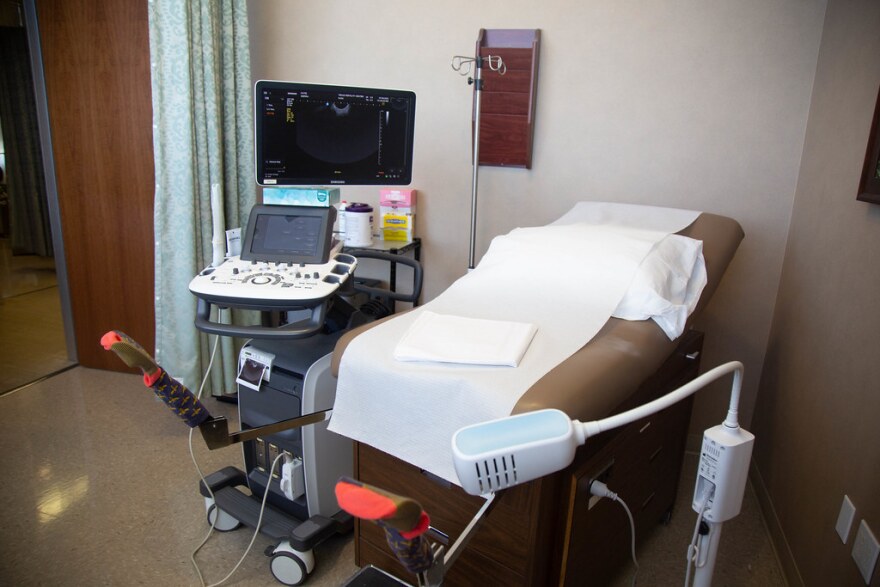After the Alabama Supreme Court ruled frozen embryos created through in vitro fertilization can be considered children, Texans on both sides of the aisle are questioning the future of IVF in the state.
The Alabama decision came in response to a lawsuit brought by several couples who alleged a fertility clinic's negligence led to the destruction of frozen embryos and that the clinic should be liable under the state’s Wrongful Death of a Minor Act. Following the court’s ruling, several IVF providers in the state said they would pause these services. A major hospital also said it couldn't find a company willing to transport embryos to other states for storage amid patient requests to move them.
Dr. David Prokai, a fertility specialist at Aspire Fertility Austin, said he has heard from many patients concerned about their continued access to IVF and embryo storage following the Alabama ruling. They wanted to know: Should I be worried about the embryos I’ve already frozen? Is it safe to begin freezing my eggs in Texas now? Should I fly to another state for fertility treatments?
“I’ve been doing my best job of answering each one of them and putting up the message that currently, right now, it’s business as usual,” Prokai said.
Abbott responds
Texas Gov. Greg Abbott indicated his support for IVF in an interview Sunday on CNN’s “State of the Union," echoing former President Donald Trump’s stance that IVF is an important part of the “miracle of life.” The governor said, however, there were “complex questions” related to IVF that needed to be answered, such as what should happen to a couple’s frozen embryos in the case of death or divorce.
"I think you're going to see states across the entire country coming together and grappling with these issues and coming up with solutions," he said.
When asked if he would urge the Texas Legislature to consider laws related to IVF, Abbott said he expected Texas would be “among the states that will be addressing this issue.”
“Texas is a pro-life state and we want to do everything possible that we can to maintain Texas being a pro-life state," he said, "but at the very same time … we as a state want to ensure that we promote life, we bring more life into the world and we empower parents to be able to have more children."
Amy O’Donnell, communications director for the anti-abortion group Texas Alliance for Life, said the group supports continued access to IVF. However, she said, the organization believes embryos created through IVF should not be discarded; it supports options like embryo adoption, wherein individuals donate embryos they don't plan to use.
"We do believe that there is a way to protect life from the moment of an embryo's fertilization while still allowing families the opportunity to bring forth life through the IVF process," O'Donnell said. "It is something that we trust the Legislature is going to be looking into."
Texas state Rep. Mihaela Plesa (D-Plano) has called on Abbott to protect access to IVF at the state level, as reported by KERA. Plesa launched a petition urging Texas lawmakers "to not only maintain but improve access and affordability of IVF treatments."
The view from the lab
Prokai said efforts to limit the number of embryos created through IVF or to legally classify embryos as children “fundamentally threaten” the process.
"One of the biggest ways that we can increase a couple's chances is by growing more eggs and making more embryos," he said. "This is the specific area that laws that try to limit the number of embryos formed, or embryos that can be frozen, directly attack."
As with natural human reproduction, variables abound through the IVF process. Often, Prokai said, only a fraction of the eggs collected from patients are mature and able to be fertilized by sperm in the lab. Of the eggs that are fertilized and form embryos, up to half won’t grow to the stage where they can be transferred to a uterus. At that stage, up to 90% of embryos may be deemed genetically unhealthy, meaning they don't have the correct number of chromosomes to lead to a successful pregnancy. And even among healthy embryos, up to 40% of those transferred don't result in an implantation or live birth.
Choices about what to do with extra frozen embryos vary, Prokai said. Some patients choose to donate embryos to friends and family members or through anonymous embryo adoption. Some patients also choose to discard them.
"It's not any sort of graphic or maniacal process," he said. "It's just simply taking them out of the freezing solution. They come up to room temperature, and if in a certain amount of time they’re not transferred, they just dissolve away."
As for Abbott’s questions about what to do with embryos after death or divorce, Prokai said couples can sign contracts ahead of IVF indicating what will happen to these embryos.
For now, Prokai said he isn't aware of any potential legislation in Texas that would cause concern for him or his colleagues. He said he hopes the attention brought to IVF by the Alabama decision will ultimately lead states to clarify laws to exempt IVF from any legislation that aims to legally treat embryos as children.
"I'm hopeful that people will come forward — both privately and publicly — to really bring attention to what we do, why we do it, how much care we put in terms of all our patients and all their embryos," he said, "and ultimately [create] some codified laws that protect IVF."
Copyright 2024 KUT News. To see more, visit KUT News.


